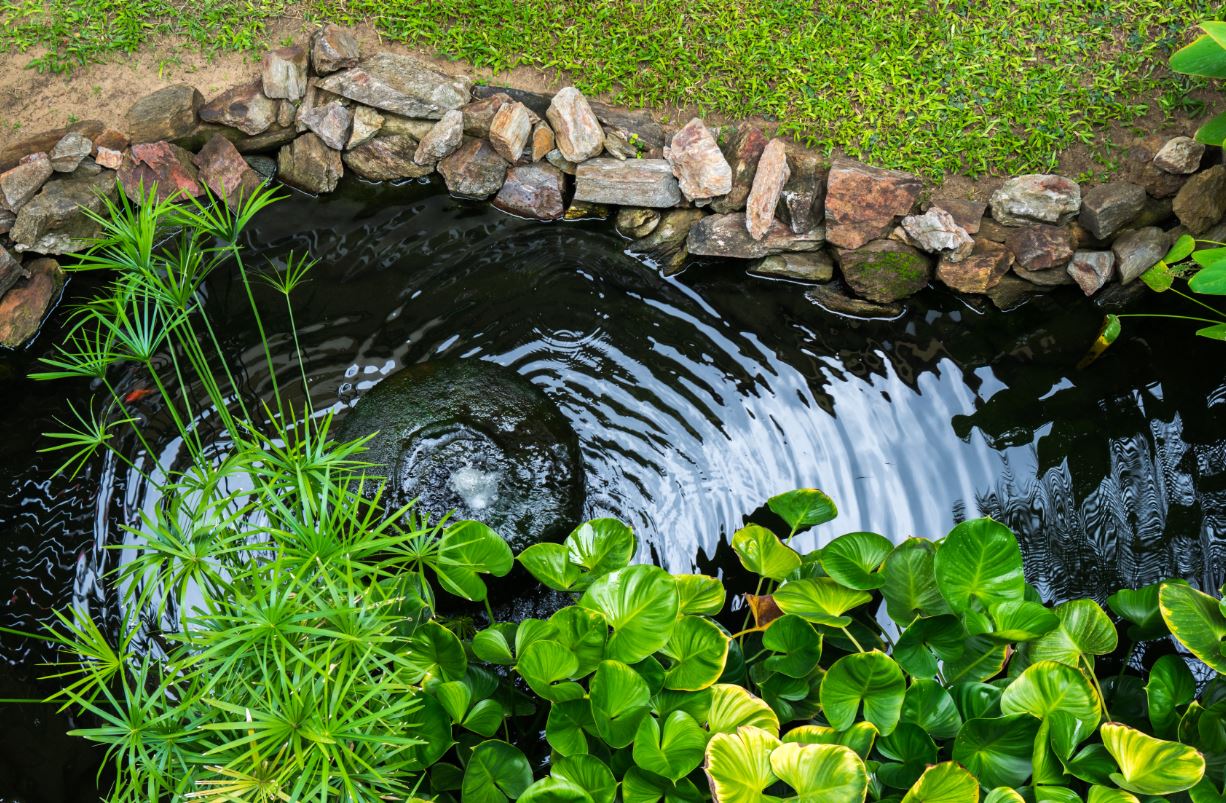Clearly beloved - A guide to pond filtration
No matter what kind of pond or water feature you own, the chances are you’ll want what we all aspire to – crystal clear water. It’s a very simplistic view but most clarity issues are caused by two main problems: algae, or particulates.
Filtration is often the simplest solution, with green water potentially the easiest fix of all. Despite a range of chemicals and additives being available https://www.fishkeeper.co.uk/pond-products/treatments-medications/algae-treatments these are all rather short term fixes and the best solution is an Ultraviolet clarifier https://www.fishkeeper.co.uk/pond-products/filters-uvcs-accessories/pond-uvcs supported by efficient filtration. As the algal cells that cause this discolouration are microscopic, they’ll pass straight through conventional filters no matter how fine the media. UVs work by killing the cells with lethal light rays and then clumping them together into particles large enough to be trapped by filtration. Without using chemicals and with no harmful effects on pond inhabitants, a UV gets the job done. As these units use lethal light to function, the lamp must be effective and unshaded by limescale or other deposits on the quartz sleeve that surrounds the lamp. Expect to change the lamp itself every year at the start of spring and be careful that the units aren’t allowed to freeze if turned off over winter. Just like domestic plumbing, expanding ice will cause damage which leads to leaks.
For wildlife ponds without fish or pumps, the small native crustaceans known as Daphnia (or water fleas) are the best solution, as they eat the phytoplankton that causes green water and form the basis of a whole ecosystem. Fish love to eat them and this is why you’ll find them sold as live food in our stores – introduce them to your pond as you would fish and marvel at a tiny animal which changes its body shape throughout the year, although you might need a microscope to appreciate the finer details.
In some ponds, the actions of fish will keep particles in suspension which cloud the water. Carp of all kinds are especially good at grubbing around the base of the pond and keeping muck from settling. Large carp can empty the soil from pond baskets and on a smaller scale, goldfish will forage through the silt and cloud the water. This is good news, as it means that these solids can then get removed by the filtration but often these filters can be overwhelmed. If you’re having to clean your filter media such as foams excessively, it may be time for a deep clean to remove the waste from the pond which is best accomplished with a pond vacuum https://www.fishkeeper.co.uk/pond-products/miscellaneous-pond-products/pond-vacuums-skimmers or by draining and bailing out the old fashioned way. Pond foams will also clog internally, so replacing old foams or using a sludge remover can also help https://www.fishkeeper.co.uk/pond-products/treatments-medications/sludge-remover.
Sometimes, the particulates are too fine to be trapped by the filter media and this is where a flocculating agent comes in useful https://www.fishkeeper.co.uk/aquapond-care-cloudy-water-treatment. By clumping fine particles into larger ones, they are more easily removed from the water column, either by filtration or their increased weight causing them to sink.
So far we’ve looked at solutions that mainly involve products and technology but it’s fair to say that biological processes can play a huge part. Plants play a huge role in improving water quality and using their power to keep things balanced can be hugely beneficial. As well as competing with algae for nutrients, they provide shade and a boost to the filtration. Without a source of overnight aeration it’s possible to overdo submerged ‘oxygenating’ plants, but the more marginals and floating plants you have in your pond, the clearer the water will be.



